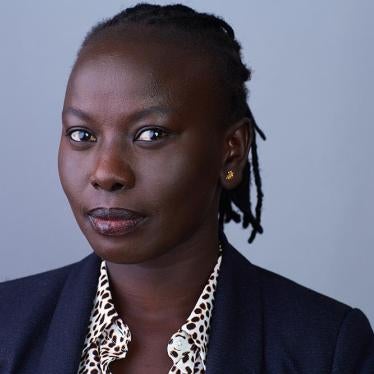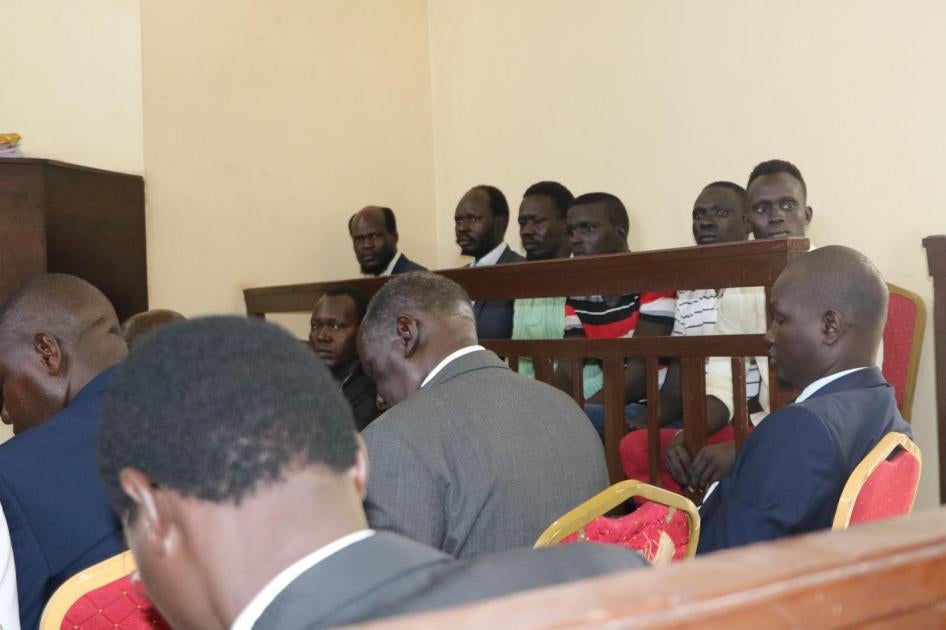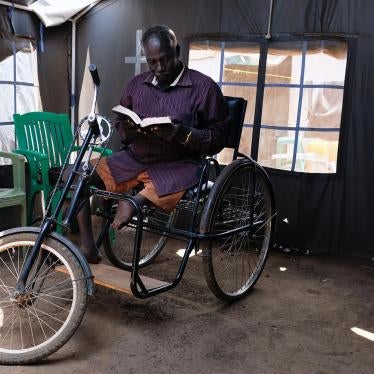This week, defense lawyers for activist Peter Biar Ajak and others filed appeals against convictions handed down by a South Sudan high court for offenses related to an October 7 uprising in a detention facility. The trial was plagued by due process and fair trial violations, and the fact of the men’s arbitrary incarceration and abusive treatment was wholly ignored.
Ajak was sentenced along with Kerbino Wol Agok, Simon Dau Makuei, Dar Duer Dar, Benjamin Agany Akol, and James Bol Akec to prison terms of between 2 and 13 years. The men were initially arrested by national security service (NSS) officials in 2017 and 2018 for different reasons. Like other NSS detainees, they were held in squalid conditions in an NSS facility known as the “Blue House,” without charge and largely denied access to family, lawyers, and medical care.
When the men were finally brought to court on March 23, it was not for the reasons they were arrested – which remain undisclosed to them or their lawyers. Rather it was on charges of terrorism, sabotage, and treason stemming from the October 7 uprising at the Blue House. On that day, detainees took up weapons protesting unlawful detention and unlawful killings.
Although the court dropped the treason charges against Ajak, it convicted him for “breach of the peace” because he spoke to foreign press by phone during the standoff – an indictment of free speech.
The men had restricted access to lawyers and family, often in the presence of national security agents. Proceedings were conducted in Arabic – with poor interpretation and barely understood by the accused and lawyers. Despite indications of witness intimidation, the court declined to have witnesses testify in private. Michael Wetnhialic, a defense witness was arrested and detained by NSS after he testified in open court. One of the accused, Kerbino, was brought to the hearing by his NSS captors with blood stains on his clothes, raising suspicion that he had been beaten in custody for statements made in court.
The court raised no concerns about any of these issues. And when the men’s lawyers tried to introduce evidence that the detainees were being unlawfully held in an illegal facility, the court shut down the argument, refusing to consider it.
This was the first time these men had been before a court since their arbitrary detention started – for some as long as a year, and the court could have decided that it had little choice but to address the fundamental human rights violations including the right to a fair trial at issue before it. By instead ignoring these issues and handing down convictions, the court has perpetuated the egregious injustices. It is a dark omen for rule of law in South Sudan when the court will not stand up for human rights.










